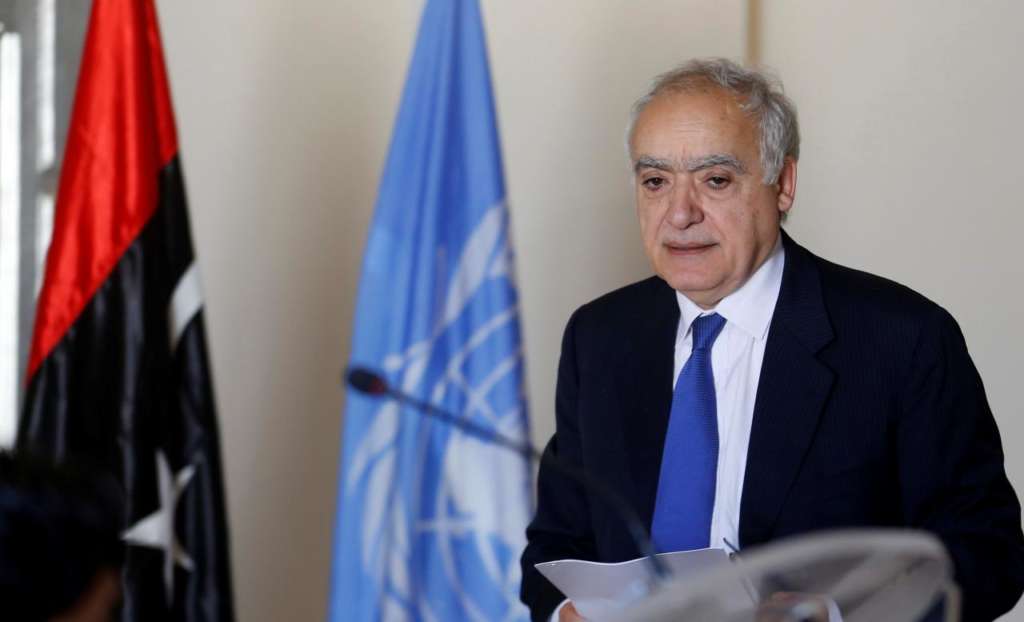Cairo– UN Envoy for Libya Ghassan Salameh met on Tuesday in Tripoli with the head of the National Accord government, Fayez al-Sarraj and the president of the Supreme State Council, Abdulrahman al-Suweihli.
Salameh’s unannounced visit to Libya followed a series of meetings in the Tunisian capital to discuss prospects for a political solution to the Libyan crisis.
In a brief statement, the UN envoy’s office said that Salameh discussed with Sarraj the ongoing political process and the work of the unified committee in charge of amending the Skhirat Agreement.
The UN envoy has also met with Suweihli, with whom he reviewed the committee’s work.
In remarks to Asharq al-Awsat newspaper, State Council member Ahmed al-Naqi said that Salameh’s visit to Tripoli and his talks with Suweihli “are indicative of the need to overcome some of the formal differences between the two negotiating sides of the committee, (the representatives of Parliament and the State Council), and the importance to end the division in their upcoming meeting.”
Meanwhile, Brigadier General Ahmad al-Mesmari, spokesman for the General Command of the Libyan Army, said that Field Marshal Khalifa Haftar would meet the UN Special Envoy to Libya, calling for preserving Libyan military establishment and its leadership.
“The Libyan armed forces will have a word in the Libyan talks because the reality now is unbearable,” Mesmari said in a televised statement.
On Sunday, the first UN-sponsored meeting between the two dialogue delegations concluded with an agreement over the need to restructure the executive authority, according to Salameh.
The delegations, which include representatives from Parliament and the State Council, formed a unified delegation to discuss amendments to the Skhirat Agreement, which was signed in December 2015 in Morocco.
Salameh added that both sides have also agreed that the presidential council would be constituted of a president, two vice-presidents and an independent prime minister (instead of nine current members).
